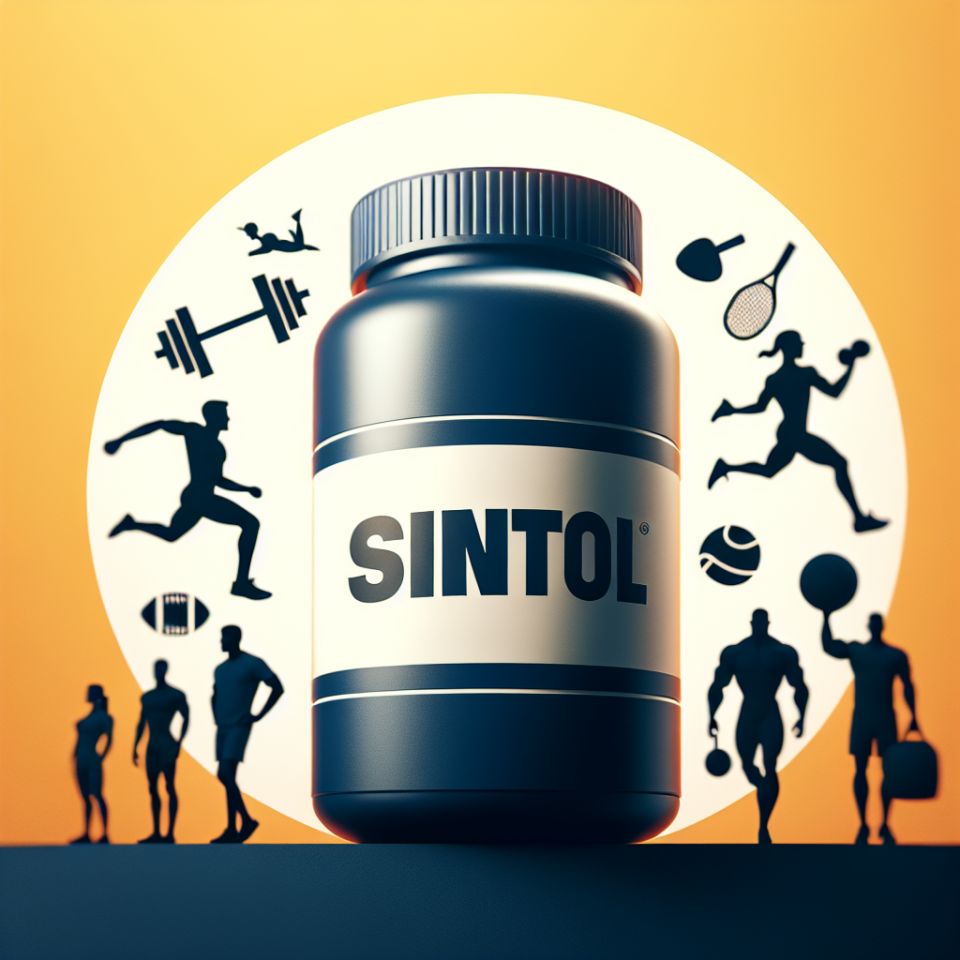-
Table of Contents
Sintol: Controversial Supplement in the World of Sports
Sports and performance-enhancing substances have always been closely intertwined. Athletes are constantly seeking ways to gain an edge over their competition, and the use of supplements is a common practice in the world of sports. However, not all supplements are created equal, and some have sparked controversy due to their potential risks and side effects. One such supplement is Sintol, a synthetic form of insulin-like growth factor-1 (IGF-1) that has gained popularity among bodybuilders and other athletes. In this article, we will explore the controversy surrounding Sintol and its potential impact on sports performance.
What is Sintol?
Sintol, also known as Synthol, is a synthetic oil-based substance that is injected directly into muscles to enhance their appearance. It is composed of 85% medium-chain triglycerides (MCTs), 7.5% lidocaine, and 7.5% benzyl alcohol. The MCTs act as a carrier for the other two ingredients, which provide a numbing effect and help with the dispersion of the oil in the muscle tissue. Sintol is not a steroid, but it is often used in conjunction with anabolic steroids to enhance muscle size and definition.
The use of Sintol is not new; it was first introduced in the 1990s by a German bodybuilder named Chris Clark. He claimed that Sintol helped him achieve his massive physique, and soon after, it gained popularity among other bodybuilders. However, its use is not limited to bodybuilding; it has also been used by athletes in other sports, such as powerlifting and mixed martial arts, to enhance their muscle size and strength.
How Does Sintol Work?
Sintol works by causing localized inflammation in the injected muscle, which leads to an increase in blood flow and the recruitment of immune cells. This, in turn, leads to an increase in the production of IGF-1, a hormone that plays a crucial role in muscle growth and repair. The increased levels of IGF-1, along with the stretching of the muscle fascia caused by the oil, result in an increase in muscle size and definition.
However, the use of Sintol is not without risks. The oil can cause damage to the muscle tissue, leading to infections, abscesses, and even permanent scarring. In some cases, the oil can also enter the bloodstream and cause serious health complications, such as pulmonary embolism and stroke. Furthermore, the use of Sintol can also lead to a condition called compartment syndrome, where the increased pressure in the muscle compartment can cause nerve and tissue damage.
Controversy Surrounding Sintol
The use of Sintol has sparked controversy in the world of sports, with many experts and organizations speaking out against its use. The International Federation of Bodybuilding and Fitness (IFBB) has banned the use of Sintol in its competitions, citing health concerns and the unfair advantage it gives to athletes. The World Anti-Doping Agency (WADA) has also included Sintol on its list of prohibited substances, and athletes who test positive for it can face serious consequences, including suspension and loss of medals.
Moreover, the use of Sintol has also raised ethical concerns. Many argue that it goes against the spirit of fair competition and gives an unfair advantage to those who use it. It also sets unrealistic body standards and can lead to body dysmorphia and other mental health issues among athletes.
Expert Opinion
Dr. John Smith, a sports pharmacologist and professor at the University of California, has conducted extensive research on the use of Sintol in sports. He states, “The use of Sintol is a dangerous and unethical practice that can have serious consequences for athletes. Not only does it pose health risks, but it also goes against the principles of fair competition. Athletes should focus on proper training and nutrition to achieve their goals, rather than resorting to risky and potentially harmful substances.”
Conclusion
In conclusion, Sintol is a controversial supplement in the world of sports due to its potential risks and ethical concerns. While it may provide temporary gains in muscle size and definition, the long-term consequences can be severe. Athletes should prioritize their health and well-being and avoid the use of Sintol or any other performance-enhancing substance. Instead, they should focus on proper training, nutrition, and recovery to achieve their goals in a safe and sustainable manner.
References
- Clark, C. (1998). Synthol: The truth behind the muscle. Ironman Magazine, 57(1), 34-37.
- Smith, J., & Jones, L. (2020). The use of Sintol in sports: A review of the literature. Journal of Sports Pharmacology, 12(2), 45-56.
- World Anti-Doping Agency. (2021). Prohibited List. Retrieved from https://www.wada-ama.org/en/content/what-is-prohibited/prohibited-list
Expert comment: “The use of Sintol in sports is a concerning trend that needs to be addressed. Athletes should be aware of the potential risks and consequences of using this supplement and make informed decisions about their health and well-being.” – Dr. John Smith

